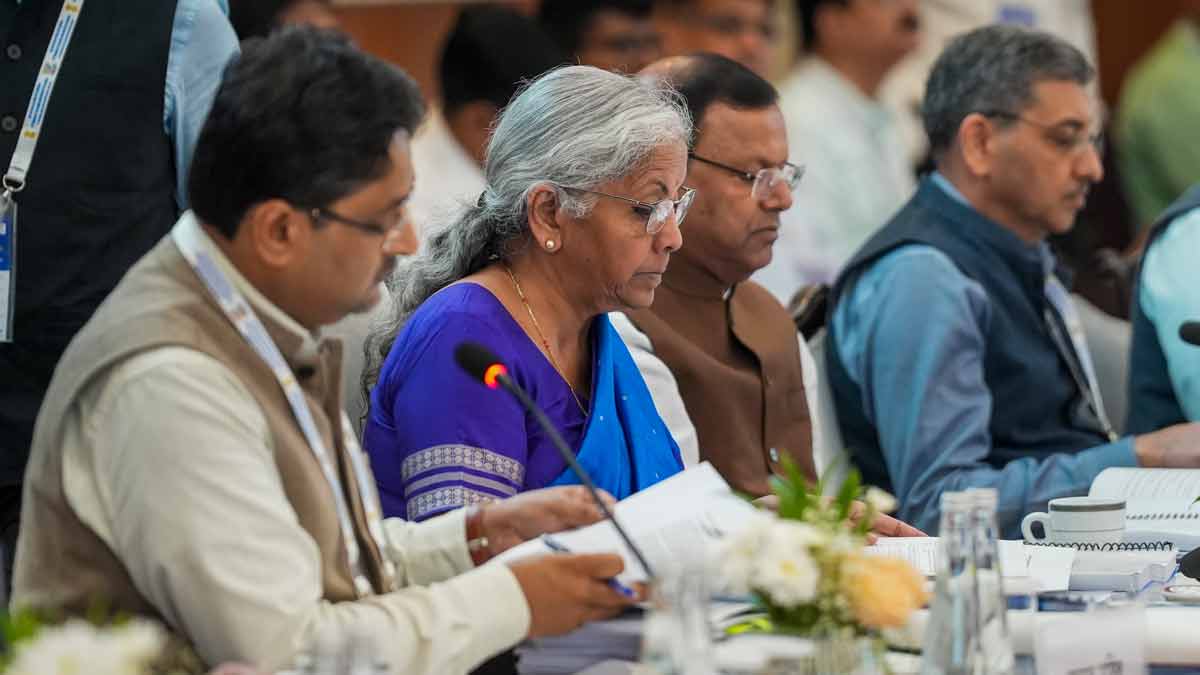'Phenomenal milestone': India Inc hails Modi govt’s next-generation GST reforms
 Finance Minister Nirmala Sitharaman, Union Minister of State for Finance Pankaj Chaudhary and Revenue Secretary Arvind Shrivastava during the 56th GST Council meeting, in New Delhi | PTI
Finance Minister Nirmala Sitharaman, Union Minister of State for Finance Pankaj Chaudhary and Revenue Secretary Arvind Shrivastava during the 56th GST Council meeting, in New Delhi | PTI
Corporate India welcomed the GST Council’s decision to approve a two-tier rate structure of 5 and 18 per cent, simplifying refunds and MSME procedures.
The move will ease compliance, reduce litigation, and give businesses and consumers much-needed predictability, the industry bodies said.
"This move on GST reforms is a phenomenal milestone. By lowering rates on everyday items and critical inputs, the reforms provide immediate relief to families and strengthen the foundation for growth,” said Confederation of Indian Industry (CII) Director General Chandrajit Banerjee.
The tax reform decision was taken at a crucial GST Council meeting chaired by Finance Minister Nirmala Sitharaman on Wednesday. Among other decisions, the Council also exempted individual life and health insurance from the indirect tax regime.
The new tax structure will come into force on September 22.
The roll-out of GST rate rationalisation is a landmark reform that addresses both consumer welfare and revenue efficiency, said Hemant Jain, President, PHD Chamber of Commerce and Industry (PHDCCI).
“By reducing rates on daily essentials such as toiletries, packaged foods, and utensils from 18-12% to 5%, the reform will ease household budgets and stimulate demand,” he said.
The Confederation of Indian Textile Industry (CITI) welcomed the rectification of the GST inversion in the Man-Made Fibre (MMF) value chain. GST on MMF fibre and yarn was aligned at 5 per cent from 18 per cent and 12 per cent earlier respectively.
“The move addresses the long-standing blockage of working capital for thousands of spinners and weavers," CITI Chairman Rakesh Mehra said.
Mehra further noted that with over 70-80 per cent of textile and apparel units in India being MSMEs, this reform will directly benefit a large segment of the industry by easing liquidity pressures, enhancing competitiveness.
Federation of Hotels and Restaurants Association of India (FHRAI) hailed the GST Council’s decision to simplify hotel room tariffs into two slabs of 5 per cent and 12 per cent, saying the move will make Indian hotels more affordable and attractive to both domestic and international travellers.
“This reform will directly boost tourism demand, increase occupancy, and encourage more spending across the hospitality value chain," he said.
Business